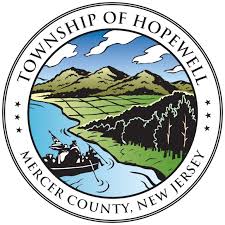The Hopewell Township Committee has adopted an ordinance that enters the township into a financial agreement with U.S. Home at Hopewell Parc Urban Renewal, LLC and approves of a payment in lieu of taxes (PILOT) for the Hopewell Parc residential development.
U.S. Home at Hopewell Parc Urban Renewal, LLC, an affiliate of Lennar, a home construction and real estate company, will make payments to the township in lieu of real estate taxes for the major subdivision and residential development.
The project is constructing 1,077 units with 216 of those units designated for affordable housing on Scotch Road. The mix includes about 432 apartments, 316 stacked townhomes, 191 single family homes, 100 townhomes, and 38 condominiums, according to the ordinance.
Hopewell Parc is a phased project to be constructed over 15 years and PILOT terms are generally 30 years, according to a presentation on Feb. 22.
“The township was careful here to ensure that this PILOT structure that is under consideration tonight is a limited reduction for a limited period of time, that for most of the duration of the PILOT term the owners of the properties in this project are going to pay close to conventional taxes,” said Kevin McManimon, attorney from McManimon, Scotland and Baumann. “The school district still gets what it needs through the budgetary process.”
At a Township Committee meeting on Feb. 22, members of the governing body voted unanimously to adopt the ordinance that approves of a long-term tax exemption for the project and enters into the financial agreement with U.S. Home at Hopewell Parc Urban Renewal, LLC to make the annual payments to the township for municipal services for the project.
Mayor Courtney Peters-Manning, Deputy Mayor Michael Ruger, Township Committeeman Kevin Kuchinski, Township Committeewoman Uma Purandare and Township Committeeman David Chait voted “yes” on the measure.
According to a presentation during the meeting by Kuchinski, the new PILOT for Hopewell Parc is expected to deliver $387 million in new revenues.
“PILOTs are a critical tool for development of housing in New Jersey and I mentioned how in Hopewell that we have so many homeowners and residents on septic systems and wells that the cost of infrastructure to build affordable housing and any housing development is significant,” Peters-Manning said. “This PILOT was really important to make the project financially viable specifically because of the high infrastructure costs.”
She added that this is not the first PILOT that has occurred in Hopewell Township. The township has used PILOTS for affordable housing projects Woodmont and Zaitz.
“It was always something that is on the table and something we were thinking about when we planned the affordable housing program in Hopewell Township. I want to make super clear that the school district and the fire district will be 100% whole with or without the PILOT,” Peters-Manning said. “I know the boroughs have expressed some opposition to it, but as I said in the meeting we have no interest in harming our neighbors.”
When the meeting took place on Feb. 22, Pennington Mayor James Davy stressed concern with the PILOT agreement and the increase increase in the share of school district expenses to Pennington and Hopewell Borough.
“Faced with increased enrollment from the Scotch Road development the school district may have to increase the number of teachers and potentially reduce programs like full-day kindergarten and district special education programs and even consider redistricting of students,” he said. “Without making reductions to school programs we will face skyrocketing property taxes. This outcome will adversely affect residents of all three municipalities.”
Resident John Edwards also voiced concern if there really is a need for the PILOT.
“Do we need this incentive? They are going to go ahead and do the sewers and infrastructure regardless of how you vote tonight,” he said.

